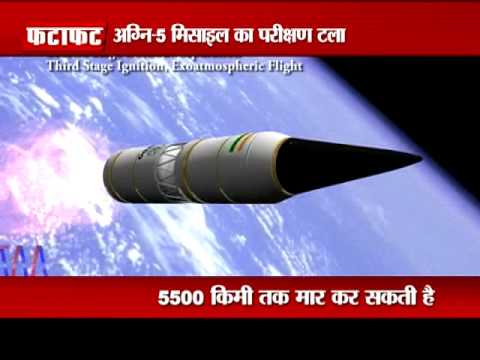
India has successfully launched Agni-V, a long-range intercontinental ballistic missile able to carry a nuclear warhead, officials say.
The locally-developed Agni-V missile was originally scheduled to launch on Wednesday in the eastern state of Orissa.
Officials had delayed the launch because of heavy lightning in the area.
The missile has a range of more than 5,000km (3,100 miles), within range of targets in China.
Analysts say the Agni (meaning “fire” in Hindi and Sanskrit) missile family is to be the cornerstone of India’s missile-based nuclear deterrent.
The missiles are among the country’s most sophisticated weapons.

In 2010, India successfully test-fired Agni-II, an intermediate-range ballistic missile with a range of more than 2,000km (1,250 miles).
The Agni-V missile was launched from Orissa’s Wheeler Island at 08:05 local time on Thursday.
“It was a perfect launch. It met all the test parameters and hit its pre-determined target,” said SP Das, director of the test range.
Indian Prime Minister Manmohan Singh congratulated the scientists for the “successful launch” of the missile.
“Today’s launch represents another milestone in our quest for our security, preparedness and to explore the frontiers of science,” he said.
The missile took about 20 minutes to hit its target somewhere near Indonesia in the Indian Ocean.
Defense analyst Rahul Bedi says a successful test flight of the Agni-V missile, which is capable of delivering a single 1.5-ton warhead deep inside nuclear rival China’s territory, would strengthen India’s nuclear deterrence once it comes into service by 2014-15.
It is 17.5 m tall, solid-fuelled, has three stages and a launch weight of 50 tons. It has cost more than 2.5 billion rupees ($480 million) to develop.
Only China, Russia, France, the US and UK have such long-range missiles. Israel is thought to possess them.
“Agni-V is to meet our present-day threat perceptions, which are determined by our defense forces and other agencies,” DRDO Ravi Gupta spokesman told AFP news agency ahead of the launch.
“This is a deterrent to avoid wars and it is not country-specific,” he said.
[youtube Io-9edOgs0o]